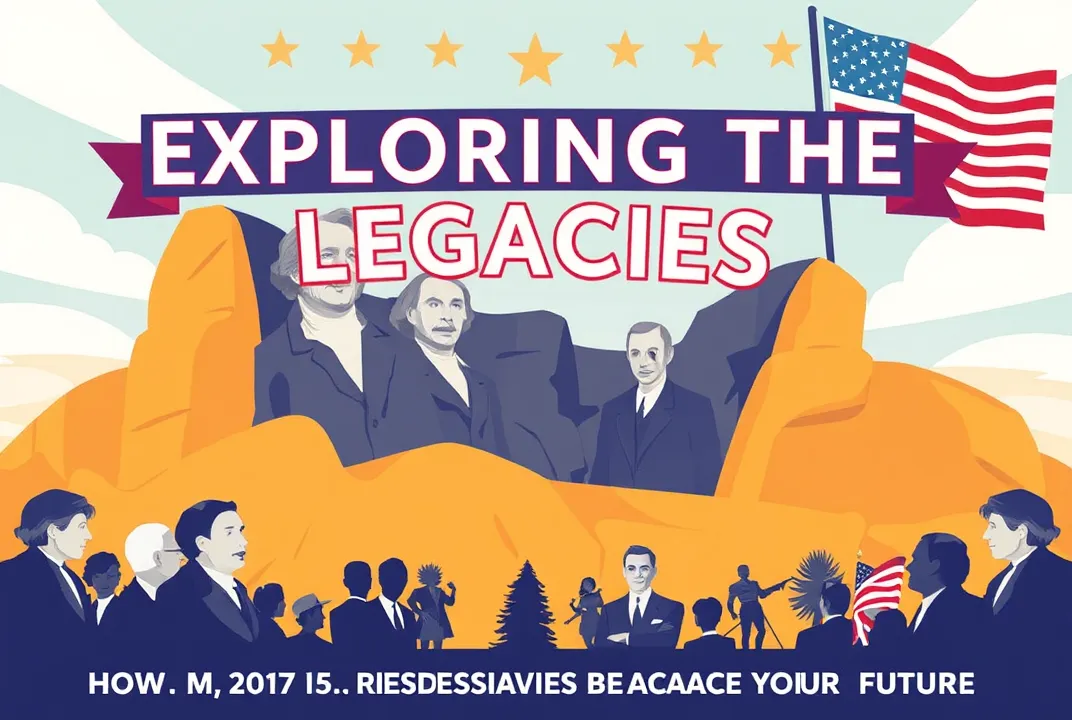Introduction: A Journey Through Time
From George Washington's resolute decisions to Joe Biden's contemporary challenges, the legacy of U.S. Presidents is woven into the very fabric of America. Each presidency has not only shaped the immediate political landscape but has also influenced the nation’s trajectory in profound ways. As we explore the legacies left by these leaders, we encounter stories of triumph, turmoil, and transformation that resonate through time and continue to mold America's future.
The Foundations: George Washington and the Birth of a Nation
A Leader's Vision
George Washington, the first President of the United States, laid the groundwork for the nation with a vision of unity and democracy. His decision to step down after two terms set a precedent that underscored the importance of peaceful transitions of power. Washington understood that the young nation needed stability and integrity, and he embodied these principles throughout his presidency from 1789 to 1797.
The Farewell Address
In his Farewell Address, Washington warned against the divisive nature of political parties and foreign entanglements. His words echo in current political discourse, reminding us of the enduring importance of unity and cautioning against polarization. His legacy is a testament to the challenges and responsibilities of leadership, emphasizing that the choices of one leader can affect generations.
The Transformative Years: Abraham Lincoln and the Civil War
The Great Emancipator
Fast forward to the mid-19th century, where Abraham Lincoln took office amidst the nation’s gravest crisis—the Civil War. Facing a fractured nation, Lincoln's leadership was pivotal in preserving the Union. He understood that the war was not just about territory, but about humanity and justice.
The Emancipation Proclamation
Lincoln's issuance of the Emancipation Proclamation in 1863 was a landmark moment in American history. This bold action not only freed enslaved individuals in Confederate-held territories but also redefined the war’s purpose, making it a moral battle for freedom. Lincoln's vision of a united nation, where all men are created equal, laid the foundation for civil rights movements that would follow.
A Legacy of Healing
Lincoln's assassination in 1865 marked a tragic end to his leadership, but his legacy as a unifier and a champion of human rights continues to inspire. His commitment to healing a divided nation serves as a reminder of the enduring struggle for equality and justice in America.
The Progressive Era: Franklin D. Roosevelt and the New Deal
Leading Through Crisis
The Great Depression of the 1930s brought about unprecedented economic challenges, and Franklin D. Roosevelt stepped into the presidency with a promise of hope. His New Deal programs aimed to revitalize the economy and provide relief to millions of struggling Americans.
Innovative Policies
FDR's legacy includes groundbreaking initiatives such as Social Security and unemployment insurance, which transformed the role of the federal government in American life. These policies not only provided immediate relief but also established a safety net for future generations, fundamentally reshaping the relationship between citizens and their government.
A Vision for Peace
As World War II loomed, Roosevelt's leadership extended to international relations. His vision for a post-war world led to the establishment of the United Nations, aimed at fostering global cooperation and preventing future conflicts. His legacy remains a cornerstone of American diplomacy, showcasing the power of leadership in times of crisis.
Modern Challenges: Barack Obama and the Healthcare Revolution
A Historic Presidency
Barack Obama, the first African American President, took office during a time of deep economic recession. His presidency symbolized hope and change, resonating with millions who dreamed of a more inclusive America.
The Affordable Care Act
Obama’s signature achievement, the Affordable Care Act (ACA), aimed to provide healthcare access to millions of uninsured Americans. Despite facing fierce opposition, his determination to reform the healthcare system has had lasting implications, elevating healthcare to a central issue in American politics.
A Divided Nation
Obama's presidency also highlighted the deep divisions within the country. His handling of issues like race relations and immigration sparked nationwide debates, reflecting the complexities of American identity. His legacy is a reminder that progress often comes with resistance, and that the road to equality is fraught with challenges.
The Current Landscape: Joe Biden's Call for Unity
Navigating a Pandemic
As the nation faced the unprecedented challenges of the COVID-19 pandemic, Joe Biden assumed the presidency in 2021 with a promise to unite a deeply divided country. His administration's focus on public health, economic recovery, and social justice reflects a commitment to addressing the multifaceted issues that plague contemporary America.
A Renewed Commitment to Democracy
Biden’s leadership emphasizes the importance of restoring faith in democratic institutions and protecting voting rights. His call for unity resonates as a crucial component of his presidency, reminding us that the legacies of past leaders can guide us toward a more inclusive future.
Conclusion: The Ongoing Legacy
The legacies of U.S. Presidents are not merely historical footnotes; they shape the values, policies, and collective memory of America. From the foundational principles of Washington to the social justice initiatives of Obama and the challenges faced by Biden, each leader’s journey reflects the evolving narrative of a nation striving for its ideals.
As we stand at the crossroads of history, the legacies of these leaders serve as both inspiration and caution. They remind us that the choices made today will echo through time, shaping the future for generations to come. As we explore these legacies, we must remain engaged, informed, and committed to the ideals of democracy, justice, and unity that define the American spirit.


 Exploring Bill Clinton's Legacy: Transformative Policies and Modern Impacts
Exploring Bill Clinton's Legacy: Transformative Policies and Modern Impacts
 Jimmy Carter: Lessons in Leadership and Legacy for Today's World
Jimmy Carter: Lessons in Leadership and Legacy for Today's World
 Pam Bondi: Unveiling the Impact of a Legal Titan on Modern Politics
Pam Bondi: Unveiling the Impact of a Legal Titan on Modern Politics
 Exploring Usha Vance: A Glimpse into Her Inspiring Journey and Influence
Exploring Usha Vance: A Glimpse into Her Inspiring Journey and Influence
 Exploring the Rise of RFK Jr: A New Wave in American Politics
Exploring the Rise of RFK Jr: A New Wave in American Politics